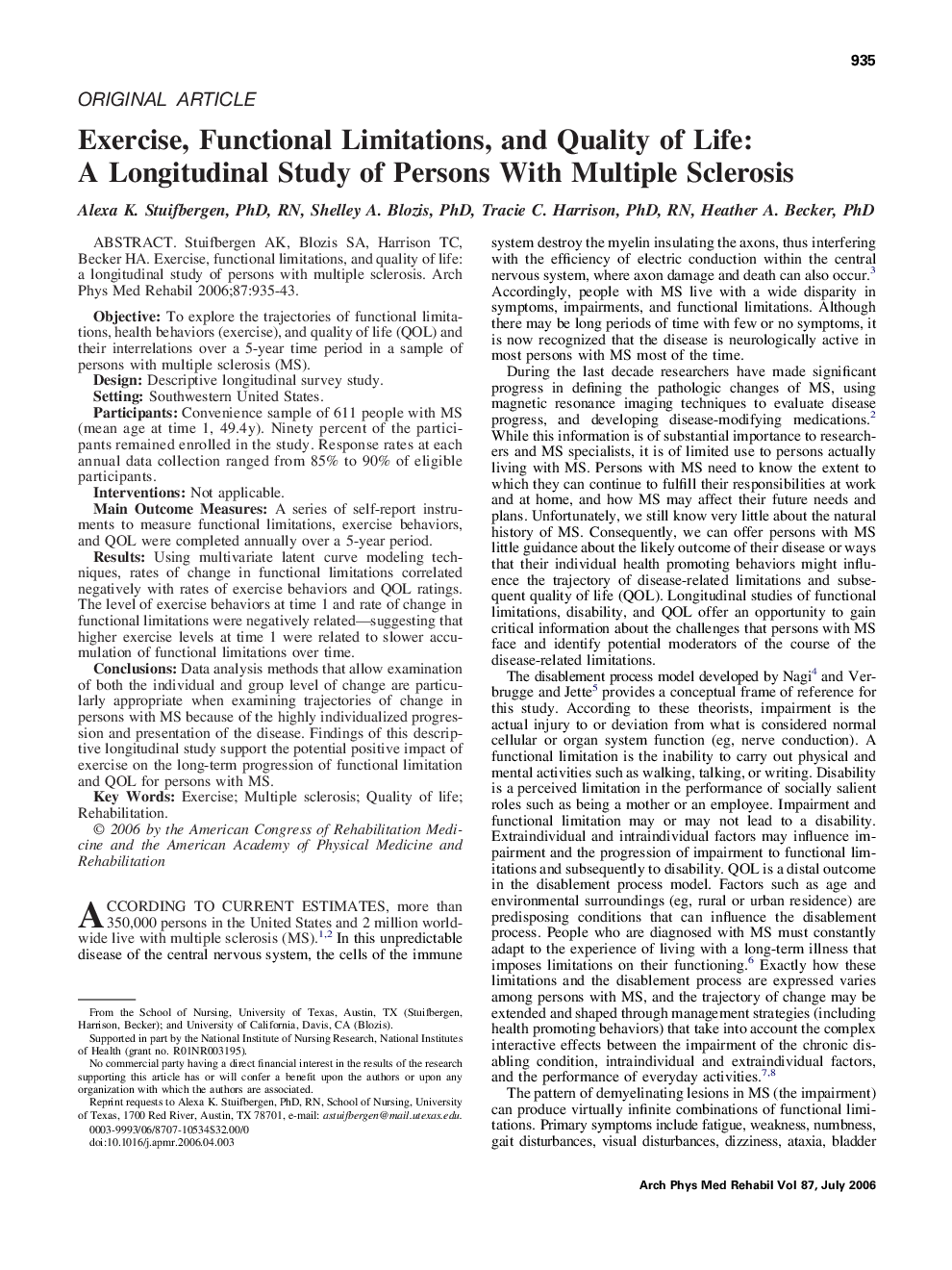| Article ID | Journal | Published Year | Pages | File Type |
|---|---|---|---|---|
| 3452736 | Archives of Physical Medicine and Rehabilitation | 2006 | 9 Pages |
Stuifbergen AK, Blozis SA, Harrison TC, Becker HA. Exercise, functional limitations, and quality of life: a longitudinal study of persons with multiple sclerosis.ObjectiveTo explore the trajectories of functional limitations, health behaviors (exercise), and quality of life (QOL) and their interrelations over a 5-year time period in a sample of persons with multiple sclerosis (MS).DesignDescriptive longitudinal survey study.SettingSouthwestern United States.ParticipantsConvenience sample of 611 people with MS (mean age at time 1, 49.4y). Ninety percent of the participants remained enrolled in the study. Response rates at each annual data collection ranged from 85% to 90% of eligible participants.InterventionsNot applicable.Main Outcome MeasuresA series of self-report instruments to measure functional limitations, exercise behaviors, and QOL were completed annually over a 5-year period.ResultsUsing multivariate latent curve modeling techniques, rates of change in functional limitations correlated negatively with rates of exercise behaviors and QOL ratings. The level of exercise behaviors at time 1 and rate of change in functional limitations were negatively related—suggesting that higher exercise levels at time 1 were related to slower accumulation of functional limitations over time.ConclusionsData analysis methods that allow examination of both the individual and group level of change are particularly appropriate when examining trajectories of change in persons with MS because of the highly individualized progression and presentation of the disease. Findings of this descriptive longitudinal study support the potential positive impact of exercise on the long-term progression of functional limitation and QOL for persons with MS.
